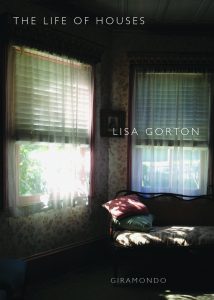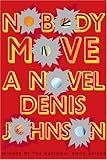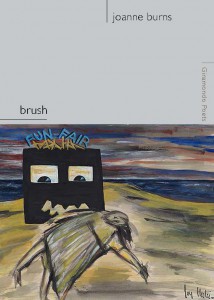 The narrative in this collection exists in that there is no narrative; we find ourselves instead in the pairing of clashing words that, like a musical score, creates not an arch, but rather the opening of a flower. Each prose poem is handled with delicate care, and yet, Lewis is able to formulate each in a sense of divine carelessness. She redesigns familiar clichés into new architecture, allowing a close proximity to the reader throughout each section.
The narrative in this collection exists in that there is no narrative; we find ourselves instead in the pairing of clashing words that, like a musical score, creates not an arch, but rather the opening of a flower. Each prose poem is handled with delicate care, and yet, Lewis is able to formulate each in a sense of divine carelessness. She redesigns familiar clichés into new architecture, allowing a close proximity to the reader throughout each section.
A review of The Life of Houses by Lisa Gorton
 Though the book reads quickly, it’s denser than it feels. As a reader, I felt it was necessary to slow down my reading so I could notice all the descriptive detail and the power in each word in The Life of Houses, allowing the story to unfold at its own rhythm and get fully under the skin. This is an utterly beautiful and somewhat sad story that grows in power with re-reading as it strikes at the heart of human relationships, families, self-perception, and how we make meaning in our lives.
Though the book reads quickly, it’s denser than it feels. As a reader, I felt it was necessary to slow down my reading so I could notice all the descriptive detail and the power in each word in The Life of Houses, allowing the story to unfold at its own rhythm and get fully under the skin. This is an utterly beautiful and somewhat sad story that grows in power with re-reading as it strikes at the heart of human relationships, families, self-perception, and how we make meaning in our lives.
A review of Nobody Move by Denis Johnson
 Some of it has an edge – to be absolutely just – but I think even Johnson himself lost interest in it, characters and story, the whole shebang, way before the close. The novel sputters to an end.
Some of it has an edge – to be absolutely just – but I think even Johnson himself lost interest in it, characters and story, the whole shebang, way before the close. The novel sputters to an end.
Interview with Tonya Barbee
 The author of The Little Girl Inside: Owning My Role in My Own Pain talks about how she started writing, the inspiration for her book, her title, her themes, her work-in-progress, the hardest part of writing the book, and more.
The author of The Little Girl Inside: Owning My Role in My Own Pain talks about how she started writing, the inspiration for her book, her title, her themes, her work-in-progress, the hardest part of writing the book, and more.
A review of Confidentially Yours by Charles Williams
 You could say, tongue in cheek, that it is the diverting story of how a man loses one wife and finds another. There are lots of twists and turns to the story, the characters are well-defined (if anything, they behave a little too straightforwardly – no melancholy moping as in some novels I’ve read recently) and Williams’s prose is plenty good enough.
You could say, tongue in cheek, that it is the diverting story of how a man loses one wife and finds another. There are lots of twists and turns to the story, the characters are well-defined (if anything, they behave a little too straightforwardly – no melancholy moping as in some novels I’ve read recently) and Williams’s prose is plenty good enough.
A review of Mendeleev’s Mandala by Jessica Goodfellow
 But Goodfellow’s book is not chock-full of despair. There is a welcomed humor that shines through the poems, because of her ability to play with words. This is present even in a poem as serious as the above mentioned, where Goodfellow lists avoidable words, “blind date, love at first sight, second sight, stars in your eyes, only have eyes for you, blind love, blind devotion, sight for sore eyes, see-through blouse, easy on the eyes, roving eye, eye candy, bedroom eyes” (42).
But Goodfellow’s book is not chock-full of despair. There is a welcomed humor that shines through the poems, because of her ability to play with words. This is present even in a poem as serious as the above mentioned, where Goodfellow lists avoidable words, “blind date, love at first sight, second sight, stars in your eyes, only have eyes for you, blind love, blind devotion, sight for sore eyes, see-through blouse, easy on the eyes, roving eye, eye candy, bedroom eyes” (42).
A review of brush by Joanne Burns
 At times, the poems are so full of parataxis, clever juxtaposition, ironic aside and syntactical juggling, that the poems, taken too quickly or in too large a dose can create a kind of vertigo. However, I couldn’t leave the book alone. It kept drawing me back, one poem at a time, and each time I returned I found something new; something powerful.
At times, the poems are so full of parataxis, clever juxtaposition, ironic aside and syntactical juggling, that the poems, taken too quickly or in too large a dose can create a kind of vertigo. However, I couldn’t leave the book alone. It kept drawing me back, one poem at a time, and each time I returned I found something new; something powerful.
An interview with Jacob Rubin
 The author of The Poser talks about his protagonist, the World’s Greatest Impressionist, about his experience as a juggler and a rapper, about growing up among psychoanalysts and the influence on his character, about the user of first-person confession, about his parallel world fable-like setting, and much more.
The author of The Poser talks about his protagonist, the World’s Greatest Impressionist, about his experience as a juggler and a rapper, about growing up among psychoanalysts and the influence on his character, about the user of first-person confession, about his parallel world fable-like setting, and much more.
A review of Beasts by John Crowley
 One can detect a definite indebtedness to T.H. WhIte (The Once and Future King, The Goshawk) in Crowley’s early novel (1976 was the original year of publication) but it’s an entertaining read and full of memorable characters. Indeed, I didn’t think I would ever find myself feeling for or empathising with a dog called Sweets, but that’s just what happened here.
One can detect a definite indebtedness to T.H. WhIte (The Once and Future King, The Goshawk) in Crowley’s early novel (1976 was the original year of publication) but it’s an entertaining read and full of memorable characters. Indeed, I didn’t think I would ever find myself feeling for or empathising with a dog called Sweets, but that’s just what happened here.
A review of You Have No Power Over Me by Mark Logie
 You Have No Power Over Me is a rather scary little story about a Daniel, a young boy alone in the park, and Lark, an older man who lives on what he can steal. Both Daniel and Lark are misfits – society’s cast-offs and both seem to be living a lonely, tenuous and dangerous existence when Lark finds Daniel.
You Have No Power Over Me is a rather scary little story about a Daniel, a young boy alone in the park, and Lark, an older man who lives on what he can steal. Both Daniel and Lark are misfits – society’s cast-offs and both seem to be living a lonely, tenuous and dangerous existence when Lark finds Daniel.